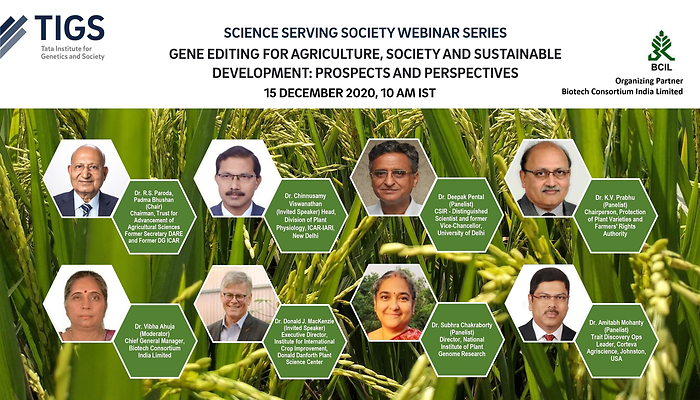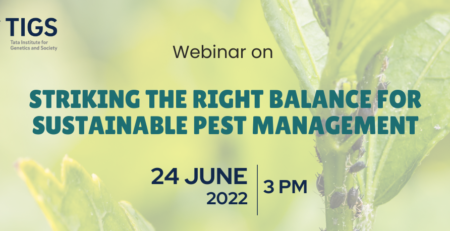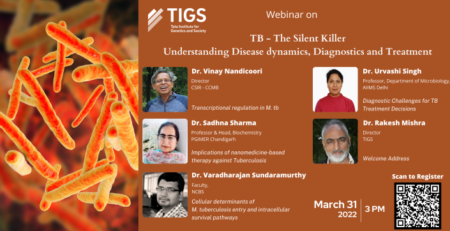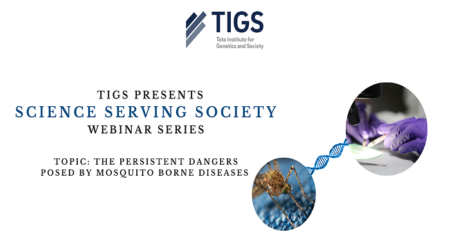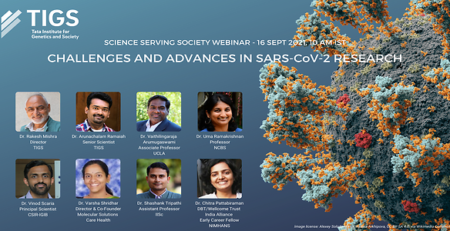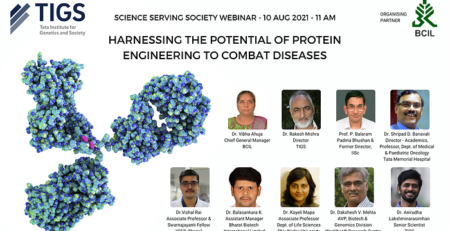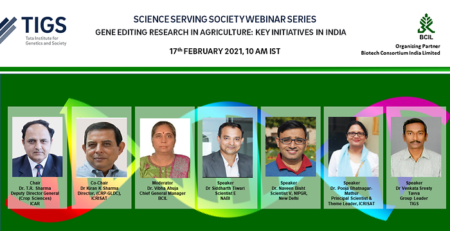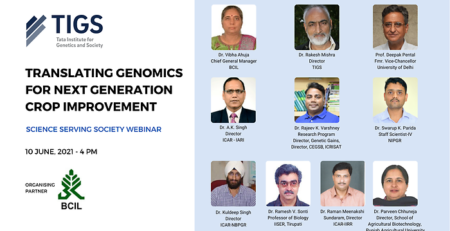Webinar recording
Highlights
Closing the year with a bang, the fourth webinar under the ‘Science Serving Society’ series, on “Gene Editing for Agriculture, Society and Sustainable Development: Prospects and Perspectives”, was held on 15 December 2020. TIGS brought together a group of expert panelists to discuss how scientific research and cutting-edge technology can enable and empower farmers to address some of the challenges they face in a complex agricultural ecosystem in India.

Padma Bhushan Dr. R.S. Paroda, Former DG ICAR, Former Secretary DARE and Chairman, Trust for Advancement of Agricultural Sciences, opened the webinar. His remarks largely focused on gene editing and its implications on global agriculture. He also stressed on the requirement for developing clear policy decisions and public awareness at the earliest, while underlining the scientific community’s efforts to develop crops that are resistant to biotic and abiotic stresses.
Dr. V. Chinnusamy, Head – Division of Plant Physiology, ICAR-IARI, then gave a summary of the technical aspects of gene editing, its applications in agriculture, the difference between gene edited and Genetically engineered plants, and initiatives taken by entities like ICAR and DBT India. Thereafter, Dr. Donald J. Mackenzie, Executive Director, Institute for International Crop Improvement, Donald Danforth Plant Science Center, discussed the need for an enabling environment to use gene editing, particularly in the context of streamlining regulatory requirements. He also spoke about recent developments with respect to gene editing regulations in various countries.

A panel discussion chaired by Dr. R.S. Paroda followed, where he shed light on the rapid pace of developments in gene editing for both research and commercialization at the global level. He also talked about how gene editing can be effectively used for the benefit of farmers and society in India. Other panelists like Dr. Deepak Pental, CSIR – Distinguished Scientist and former Vice-Chancellor, University of Delhi; Dr. K.V. Prabhu, Chairperson, Protection of Plant Varieties and Farmers’ Rights Authority; Dr. Subhra Chakraborty, Director, National Institute of Plant Genome Research; and Dr. Amitabh Mohanty, Trait Discovery Ops Leader, Corteva Agrisciences, discussed the potential of this technology to enhance crop productivity; the need for effective communication to build an environment of trust and transparency among stakeholders, clear policy decisions taking into consideration certain categories of gene editing, creating an enabling environment, and promoting collaborations including public private partnerships in this space.
The webinar ended with an appeal to explore further how we can benefit from the great potential of this ‘disruptive innovation’ to address food and nutritional security.

